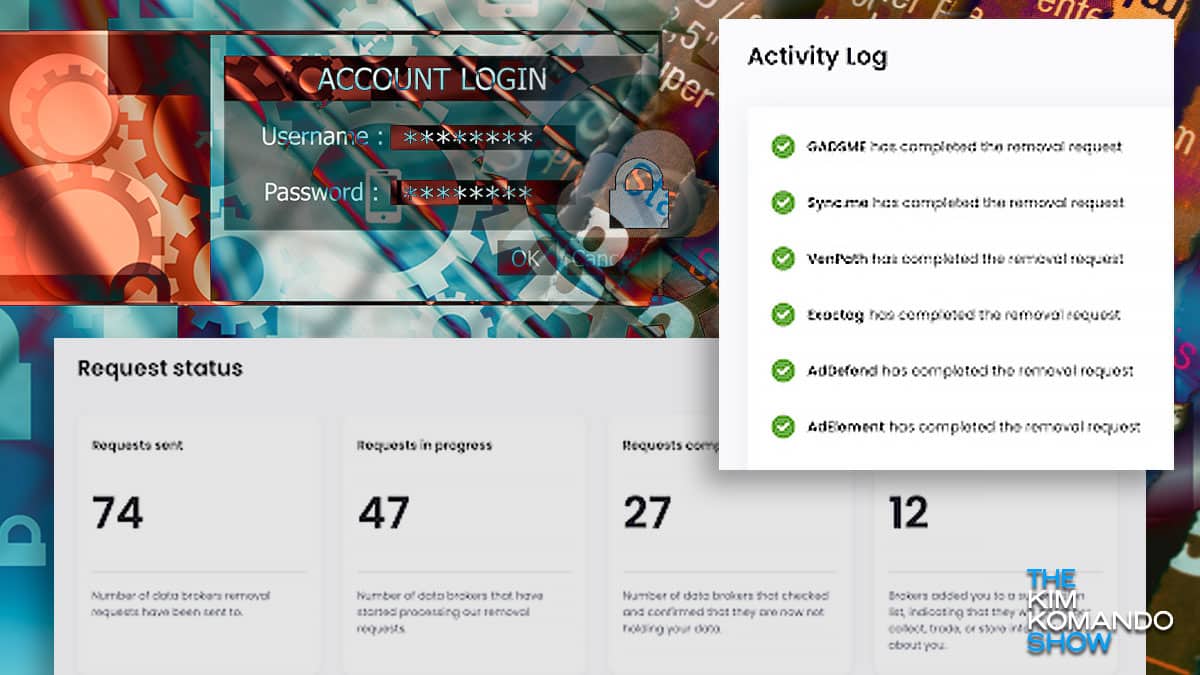Do me a favor and send unknown callers to voicemail. If it’s someone who really needs you, they’ll leave a message or call back.
Don’t click the ads – Might be malware

When I have a question now, whether it’s finding a recipe or doing math, I’m using AI a lot more than doing a good ol’ Google Search. My go-to is ChatGPT, but Perplexity is useful, too. I often ask both AI bots the same question as a way to double-check things. Google Gemini is a big “meh” to me so far.
There are things Google Search works better than AI for — say, finding a software download, a customer service number or your doctor’s website. Keep in mind that cybercriminals and hackers are also using AI to up their game. You might not think twice about clicking a Google Search result, and cybercriminals know that. I don’t want you to become a victim.
Be careful where you click
Google doesn’t vet everyone who buys an ad. Cybercrooks have a long history of hiding nasty malware in Google Ads, and they’re getting really good at SEO, driving up their malicious search results to the top.
We’re talking about everything from bogus Amazon ads to fake tech support numbers. Doctors, clinics and hospitals are a major target, too. Yep, you could end up with malware just by searching Google for your doctor’s name so you can grab the address.
Any site with a ton of traffic is risky. Think YouTube, Facebook, Target and Walmart. Those are just a few companies attackers use to get you to click on their malicious results.
How to protect yourself
With more tools than ever at their disposal, scammers are good at writing things that can trick anyone. Outsmart these jerks.
- Don’t click on sponsored links or advertising when Googling something.
- Type all web addresses directly into your browser so you know you’re going to the official or legitimate site.
- Before clicking any link, hover your cursor over it to see where it goes. Does the URL look off? Don’t click it.
- Look for extras in the URL, like “USA” added to the end. For instance, instead of target.com, scammers might send you to targetusa.com. This is an easy way to make a fake version of a site you’d otherwise trust.
Browser settings to enhance your security
These simple, quick changes can help protect you.
On Chrome:
Your data: It’s all posted online - But there's a simple way to remove it

A loyal reader, Racquel, emailed me recently after dealing with a very angry customer at work. “Last week, she left me a voicemail and said that I was behind all her problems and she was ‘going to find’ where I lived.”
Security tip: Send unknown calls to voicemail
💲 If you put a Ring on it: Ring’s raised its Basic video doorbell subscription costs from $3.99 to $4.99 a month. Always something, huh? More than ever, getting SimpliSafe to protect your whole home is a smarter and cheaper choice.
🚨 Do it right now: The National Security Agency (NSA) has a hot security tip: Power off and restart your phone weekly. Sounds like a “duh,” but it works to combat zero-click exploits and spear phishing. More tips (that I’ve been giving you for years): Keep your OS updated, and disable Bluetooth and location services when you don’t need ‘em.
Sure, they grew up with tech in their hands, but Gen Z falls for more online scams than any other generation. What percentage of people between 18 and 25 have been tricked into giving up their info or money? Is it … A.) 10%, B.) 20%, C.) 27% or D.) 34%?
Big Tech is tracking your emails

I have three different work email addresses — and a Gmail address I set up when it launched in 2004. I could never score the handle again today, but after 20 years, that inbox is a mess.
It’s become my disposable email address for coupon codes, free signups and newsletters — pretty much, the nonessential things in my digital life.
Apple and Google just teamed up to fix their stalking problem
I have an Apple AirTag (14% off, $24.99) on basically everything my husband, Barry, owns. My golden retriever, Abby, even has one attached to her collar! Thank you, Apple.
While you and I might use those quarter-sized AirTags to track our stuff, others are using them to stalk people and keep tabs on their marks. They’ll hide them in your purse or in your car to follow you home and steal your vehicle later — or worse.
We may receive a commission when you buy through our links, but our reporting and recommendations are always independent and objective.
Scammers pretending to be the Social Security office
Be careful what information you give over the phone, especially if you aren’t expecting a call.
'Does incognito keep me private?'
The good news is it does hide some things. The bad news … It’s not nearly as private as you’d think.
🔍 App traps: Over 90 apps with a combined 5.5 million downloads were spotted hiding malware in the Google Play Store. At the top of the list are PDF Reader & File Manager and QR Reader & File Manager, both packing the Anatsa banking Trojan that steals financial info. If you downloaded a compromised app, do a factory reset on your phone ASAP.
Child ID theft is on the rise: If you’re not on the lookout, you might not catch it for years. When your kid goes to rent their first apartment or get a student loan, they could find they’re already thousands of dollars in debt. Protect your kid’s credit now — I’ve got steps on how to do it on my site.
🇺🇸 Patriot Mobile’s big breach: The self-proclaimed “Christian conservative wireless provider” exposed its cellphone customers’ info, including full names, email addresses, ZIP codes and account PINs. Hard to ignore the timing on this one … If you’re a subscriber, update your login info ASAP.
🏨 No privacy? No way! Spyware was found on check-in computers at Wyndham hotels across the U.S. capturing screenshots of guest info, including names, addresses and credit card details. The spyware, pcTattletale, is sold as a smart way to monitor employees (and children!), but … it exposed all that Wyndham customer info online for anyone with the right know-how to find.
Another health care data breach: WebTPA provides admin services to health benefit plans and insurance companies. Hackers stole the names, contact details, birth and death dates, Social Security numbers and insurance info of 2.4 million people in April 2023. Yes, it happened over a year ago and we’re just hearing about it now. The company’s CEO basically said, “It’s no big deal.” Yeah, not for you.
🚨 Selfie scam warning: Criminals are combing social media for selfies, and older adults are the main targets. Why? They use your selfies to open fake accounts or access existing ones that use facial biometric tech, all so they can steal your money. Safety checklist: Enable multifactor authentication and keep your social media profiles private.
More than you bargained for: Robberies are booming on Facebook Marketplace. Thieves bait you with hot items like cars and sneakers, then they jump you when you show up to buy. Step one is checking a seller’s profile to make sure it wasn’t created yesterday. Then, meet in a public place (police stations are best) and always bring a buddy.
You have to be smarter than this: Over 10% of people still use 1234 as their four-digit PIN. Other most-used options include 1111, 0000, 1212 and 7777. If this is you, time for something more complex — and no, your birth year or address won’t cut it. On iPhone, upgrade to six digits. On Android, stick with your fingerprint if your phone has biometrics.
Careful what you post: Criminals are crawling social media accounts for videos of folks talking. Just 10 seconds is enough for AI tools to rip off your voice to scam loved ones and break into voice-authorized accounts. Come up with a safeword with your family to use if they ever get a distressed-sounding call from “you.”
A Dell, rolling in the deep: A new data breach affects up to 49 million Dell customers. Names, physical addresses, Dell hardware and order information all were swiped. Good news: Financial deets, emails and phone numbers are safe. Stay alert for phishing scams and suspicious mail now that scammers know where you live.
